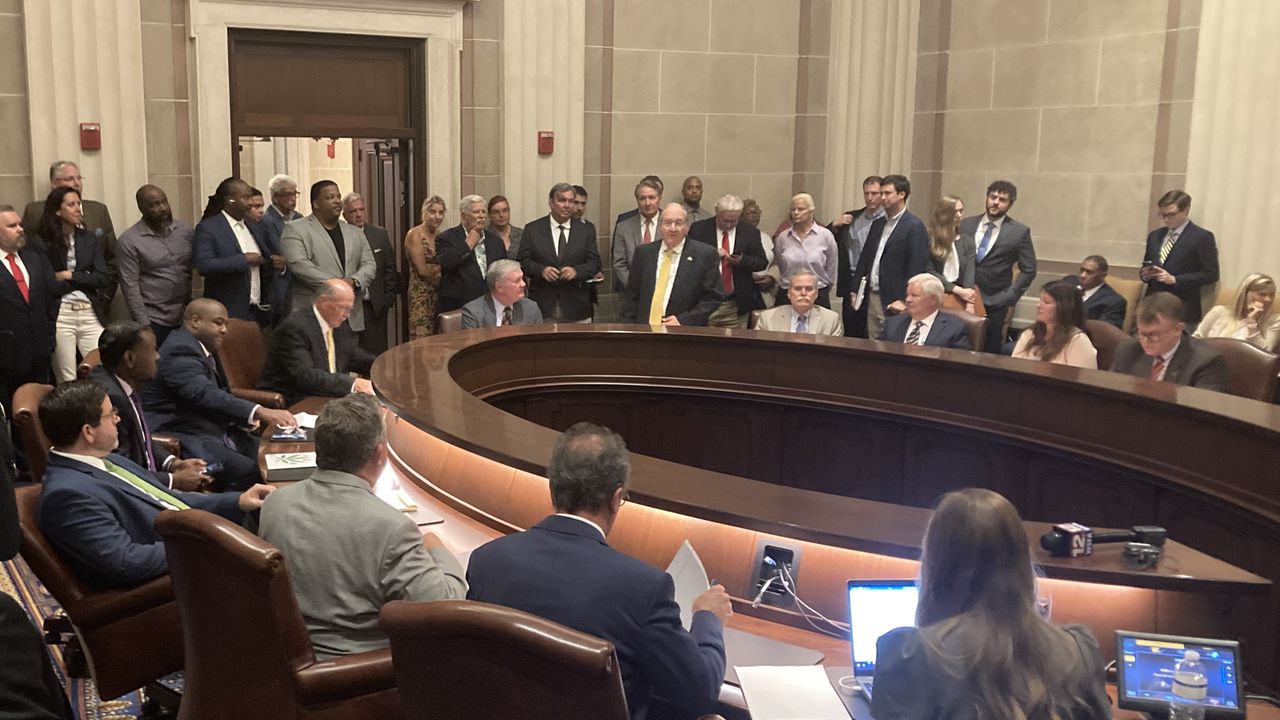Judge preserves appeals for Alabama medical marijuana licenses
A Montgomery judge issued an order Friday preserving the opportunity for companies denied a license by the Alabama Medical Cannabis Commission to appeal that decision.
Montgomery County Circuit Judge James Anderson issued a temporary restraining order at the request of license applicants Alabama Always LLC and Hornet Medicinals LLC. Anderson issued the order after a hearing Friday morning. Lawyers for the two companies and the AMCC spoke at the hearing. The AMCC did not oppose the order.
The judge denied the request by Alabama Always for “expedited discovery” to obtain depositions and documents from the AMCC to learn more about what the company claims are legal problems and inconsistencies. Anderson said the request was premature.
Arch Lee, a lobbyist for Alabama Always, said after the hearing the temporary restraining order was an important first step.
“I think that’s what everybody involved was looking for, to give us a chance to get to the bottom of it and give us time to look at everything,” Lee said. “We certainly had hoped for some discovery and that might come down the road.”
The AMCC has acknowledged its scoring of applicants was flawed and voted June 16 to suspend the licensing and the deadline for companies to appeal. The companies asked for a court order because of concerns that the AMCC did not have the authority to put a hold on the proceedings. The companies were afraid they would lose their chance to appeal.
Under the AMCC’s original timeline, companies that did not receive a license had until June 26 at 4 p.m. to appeal. Anderson’s order means that deadline is suspended. His order also affirms the AMCC’s position that it will not issue licenses on July 10, as originally scheduled. Anderson’s order will be in effect until July 13, when the judge is scheduled to hold another hearing.
“We were concerned that the commission didn’t do it properly, didn’t give proper notice, and that it didn’t have the authority under its rules and regulations to issue a stay,” William Somerville, an attorney for Alabama Always, said after the hearing. “And so we thought if we just sat around and let the time continue to run we would lose our rights or have to file an immediate appeal.”
Alabama Always, in its lawsuit filed Thursday, also cited what it said were the AMCC’s possible violations of the state Open Meetings Act, abdication of its responsibility to exercise independent judgement in the choosing the companies best qualified to receive licenses, and unfair use of a rule on the electronic filing of license applications.
A key issue is the AMCC’s decision to hire the University of South Alabama to recruit evaluators to assign scores to the license applications and the extent to which it relied on those scores. In the lawsuit, Alabama Always says the AMCC “rubber stamped” the evaluators’ scores and did not publicly discuss the merits of the license applicants.
The AMCC met on June 12, the long anticipated day when it would award licenses. The commission almost immediately voted to go into closed session. The commission reopened the meeting a few hours later and voted without discussion to award licenses to 21 companies out of the 90 that applied.
“The Commission accepted the anonymous graders’ scores without question, essentially rubber-stamping the graders’ scoring sheets with no exceptions, and exercising no independent analysis or judgment,” the lawsuit says.
“Alabama Always and the people of Alabama deserve clarity and transparency in the application process,” the lawsuit says.
Alabama Always applied for an integrated facility license, which would allow it to cultivate, produce, and sell medical marijuana. In the lawsuit, the company said it has spent more than $4.5 million to build a cultivation and processing facility west of Montgomery. Alabama Always could begin cultivation in late July or early August and could stock products in five dispensaries by January of 2024, the lawsuit says. The company has leased stores in Montgomery, Tuscaloosa, Birmingham, Gadsden, and Mobile.
This story will be updated.
